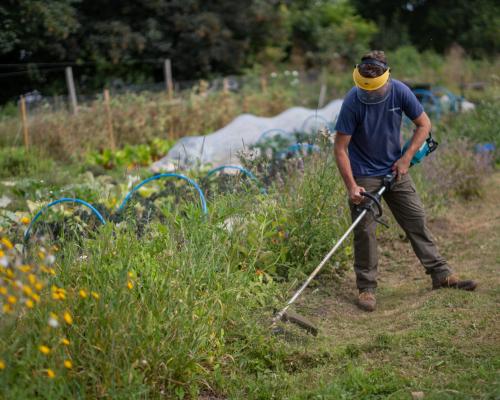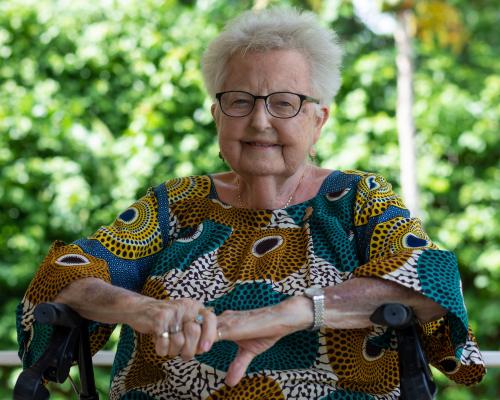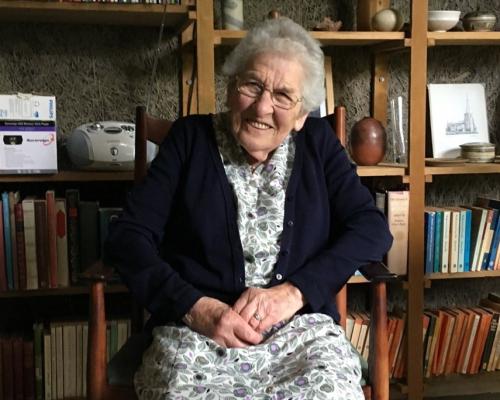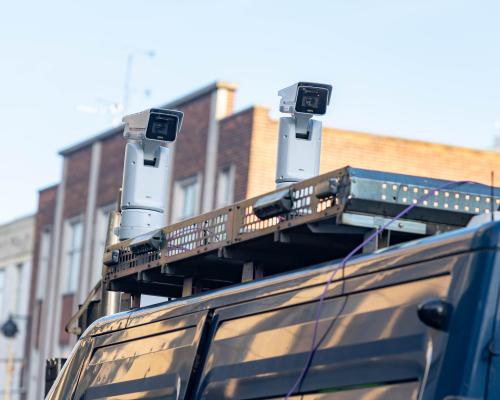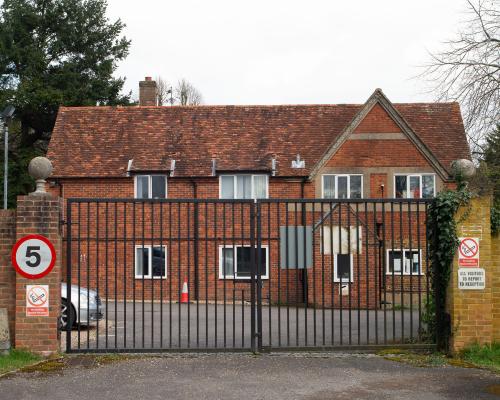
She was loving, sporty and bright. At the start of Ruth Szymankiewicz’s inquest her parents, Kate and Mark, a GP and a surgeon, described her passion for life, for adventure, for justice.
“Ruth was always thinking about making the world a better place,” they said in a pen portrait of the teenager. “She had big ideas.”
Ruth’s dreams were halted at 14 when she was found fatally injured in her room in a psychiatric intensive care unit for young people at the privately run Huntercombe hospital near Taplow, Berkshire.
She had been under one-to-one supervision but slipped away from the agency support worker who was supposed to be watching her for an act of self-harm that led to her death. Much of her inquest has focused on the mistake by the support worker – who was working under a false identity – but her parents believe she was let down by the wider system.
“Our experience of the care that Ruth received was terrible,” said Kate Szymankiewicz in her witness statement to the inquest. “Our belief is that the things that Ruth had to endure on a daily basis would have felt like torture and were something she would do anything to escape.”
When Ruth, from Wiltshire, started secondary school in September 2019, she experienced difficulties, finding the rigid structures difficult. “Retrospectively, I wonder if issues around eating may have started around then,” her mother said. “Ruth was very environmentally aware and didn’t want to have the school dinners as they were wrapped in plastic. I was sending her with packed lunches. The timetabling of the lunch clubs that Ruth wanted to do meant there often wasn’t time to eat lunch.”
When she was 13, Ruth developed physical and vocal tics including hitting herself and involuntarily swearing. It was suggested she might have Tourette syndrome.
Kate said: “Ruth’s appetite reduced and she was sleeping in late, often not wanting breakfast and on occasion not wanting her supper either. I was worried that she was at risk of developing anorexia.”
In the summer of 2021 Ruth’s mouth would lock shut before meals. “You could see the fear in her eyes about not being able to eat – she was genuinely very scared,” Kate said.
The local eating disorder service told the family that if Ruth did not eat, she would have to be admitted to hospital. She went into a children’s ward at Salisbury district hospital in August 2021 and was detained under the Mental Health Act so nasogastric (NG) tube feeding could take place without her consent.
“In retrospect, I feel that that is the point that we lost our parental rights and our ability to have any real say in her care,” Kate said.
In September 2021 while Ruth was having an NG feed, she told the staff it did not feel right. The tube was wrongly placed into her lung and she struggled to breathe and became unconscious. She had to be transferred to an intensive care unit.
The family was told Ruth would be moved in October to the secure Thames ward at Huntercombe hospital, run by the company Active Care Group, more than 70 miles (113km) from their home. “It was presented to us as a decision that had already been made and the only available option,” her mother said.
The family was concerned about the negative Care Quality Commission reports on Thames ward, but were told there would be better psychological support and education.
Kate said: “Ruth was very scared at the prospect of going to Thames ward – it was a long way from home. We wish we had fought harder to stop her going. Throughout the four months she was on Thames ward, she received little, if any, therapeutic care; she was just contained and managed. She would talk about other people on the ward and about how scary it was with the noise and seeing other people harming themselves.”
The family were worried that the parental controls on Ruth’s phone were no longer working. After her death it became clear that she had been researching suicide.
Ruth rarely attended school classes, had self-harmed on several occasions and once when her mother visited she had two black eyes. Staff said this might have happened during NG feeding as she was being restrained. Ruth was put on one-to-one constant observation.
The man who was supposed to be watching Ruth when she suffered her fatal injuries had arrived in the UK from Ghana in about November 2021. The inquest heard that he had stolen the identity of an innocent man called Ebo Acheampong and on 3 January 2022 registered with the Berkshire-based recruitment agency Platinum Healthcare Staffing, which provides temporary workers to Huntercombe. Platinum collected what it thought was proof of his ID, took two references and carried out a criminal record check.
In February the man received a day and half’s training online from one of the Platinum directors, Freda Agyemang, who also worked as a nurse at Huntercombe. In addition he received five days of Price (protecting rights in a caring environment) training, which ended on 11 February.
The day after, 12 February 2022, he was sent to Huntercombe for a 12-hour shift, his first day of work in any UK hospital setting. He was due to spend the day in a less secure ward but Thames was understaffed – as it often was – and he was moved there.
One of the Thames ward staff told the inquest that Agyemang had vouched for the agency worker, claiming he had worked at the hospital before and would be “fine”. In a statement she gave to police, Agyemang said she had not seen him until that evening after Ruth had self-harmed.
The man was given no formal induction on Thames ward despite the challenging and vulnerable people there, and towards the end of his shift was tasked with carrying out the one-to-one observation of Ruth.
CCTV footage shown to the inquest jury suggests he left her in a television room alone four times. She slipped back into her room, where she was unobserved for 15 minutes before the alarm was raised.
The man flew back to Ghana on 17 February 2022. Thames Valley police knows his true identity but the force says it does not have evidence to bring charges.
Ruth’s parents are keen that the focus is not all on the agency worker, arguing that the failings that led to her death run deep.
Kate Szymankiewicz said: “We hope that the process of unpicking her story might in some way influence the care that other children receive. That it might be family centred. That it might be provided from a place of nurturing and love. With the realisation that at the centre of that is a young, vulnerable person who needs patience, love and, especially at the age of 14, a cuddle.”
-
In the UK, the youth suicide charity Papyrus can be contacted on 0800 068 4141 or email pat@papyrus-uk.org, and in the UK and Ireland Samaritans can be contacted on freephone 116 123, or email jo@samaritans.org or jo@samaritans.ie. In the US, the National Suicide Prevention Lifeline is at 988 or chat for support. You can also text HOME to 741741 to connect with a crisis text line counselor. In Australia, the crisis support service Lifeline is 13 11 14. Other international helplines can be found at befrienders.org
-
For help with eating disorders, in the UK Beat can be contacted on 0808-801-0677. In the US, help is available at nationaleatingdisorders.org or by calling ANAD’s eating disorders hotline at 800-375-7767. In Australia, the Butterfly Foundation is at 1800 33 4673. Other international helplines can be found at Eating Disorder Hope

